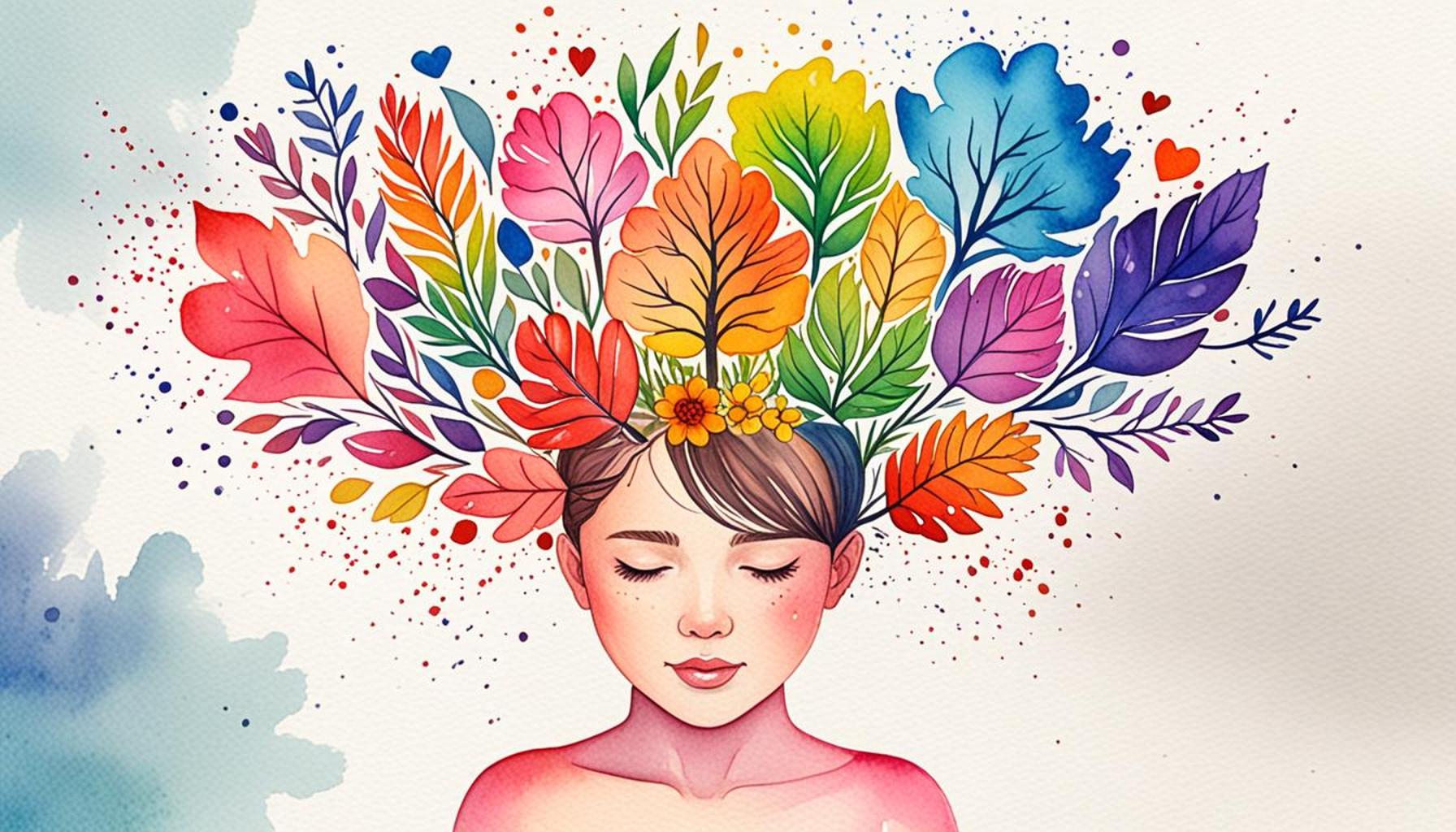The Role of Emotional Resilience in Building Healthy Interpersonal Relationships

Understanding Emotional Resilience
In a landscape marked by rapid change and unpredictability, the role of emotional resilience cannot be overstated. It is the fortress from which individuals draw strength amid adversity, equipping them to face life’s inevitable challenges with grace and tenacity. This skill is not only crucial for personal well-being but also essential for fostering healthy interpersonal relationships. The ability to rebound from setbacks plays a vital role in enhancing our connections with family, friends, and community.
The Four Pillars of Emotional Resilience
Emotional resilience is multifaceted, encompassing several critical skills that contribute to personal and relational health. Among these skills are:
- Manage stress effectively: Resilient individuals are adept at recognizing stressors and deploying strategies to cope with them, such as mindfulness practices or physical activities like dancing, which is popular in many Nigerian cultures.
- Communicate openly and honestly: Open communication fosters trust and understanding. In Nigerian contexts, where family gatherings often serve as platforms for discussion, encouraging openness can prevent misunderstandings that might lead to rifts.
- Empathize with others: This includes understanding shared experiences, as seen in communal situations such as during festivals like Eid or Christmas, where collective emotional experiences unite communities.
- Resolve conflicts constructively: Situational conflicts are inevitable but handling them with maturity promotes a healthier dynamic in relationships. Techniques such as active listening and compromise, which are nurtured in Nigerian conflict resolution practices, are fundamental to this process.
The Nigerian Context
In Nigeria, the emphasis on communal living brings the significance of emotional resilience to the forefront. Relationships extend beyond the immediate family, encapsulating friendships, workplace affiliations, and broader community ties. For example, during the Yoruba festival of Osun-Osogbo, communities come together, demonstrating communal support and highlighting the role of emotional resilience in maintaining communal harmony. Individuals learn to share joys and sorrows, nurturing resilience that sustains long-term relationships.
Further Benefits of Emotional Resilience
Beyond merely coping with stress, cultivating emotional resilience enables individuals to:
- Overcome challenges in personal relationships, thereby reducing the likelihood of breakups and fostering lasting partnerships.
- Adapt to changing social dynamics, particularly in a rapidly evolving country like Nigeria, where urbanization and globalization are altering traditional lifestyles.
- Support others in their journey towards emotional stability, creating a ripple effect that elevates the emotional health of entire communities.
As we delve deeper into the nuances of emotional resilience, we discover its profound impact on fostering not just personal bonds but also a robust sense of community and belonging. The interconnectedness between emotional resilience and strong relationships is a testament to the power of human connection, encouraging us to develop these skills for a more fulfilling life in a dynamic society.

SEE ALSO: Click here to read another article
Emotional Resilience as a Foundation for Healthy Relationships
The connection between emotional resilience and healthy interpersonal relationships is profound and often overlooked. In a society like Nigeria, where familial and communal ties are cultivated through shared experiences, emotional resilience becomes essential in navigating the complexities of these relationships. When individuals can weather life’s storms, they create a stable environment that fosters trust, understanding, and collaboration.
Navigating Life’s Challenges Together
In any relationship, challenges arise—whether it’s a disagreement between friends or stressors affecting family dynamics. Emotional resilience equips individuals with the tools to approach these challenges constructively, ensuring that they are addressed rather than avoided. By practicing skills such as stress management and constructive conflict resolution, individuals can effectively navigate interpersonal challenges without letting minor disputes spiral into major rifts. The ability to communicate openly about feelings, for instance, promotes emotional honesty and integrity, setting the stage for deeper connections.
Building Trust Through Empathy
Empathy, one of the cornerstones of emotional resilience, is critical for understanding the perspectives and feelings of others. In Nigeria, the rich narratives shared within families and communities—whether during celebrations or in times of sorrow—foster a sense of empathy that enhances relational ties. When people resonate with each other’s experiences, they cultivate a deeper compassion that advances resilience in relationships. This shared emotional understanding strengthens bonds, enabling individuals to support one another during tough times.
- Forging deeper connections: Engaging with empathy allows individuals to connect beyond surface-level exchanges, creating relationships that are resilient and responsive to change.
- Encouraging emotional support: Having empathetic conversations cements trust, resulting in environments where individuals feel safe to express vulnerabilities.
- Enhancing conflict resolution: With enhanced empathy, individuals are better equipped to address arising conflicts, making solutions more attainable.
The Societal Impact of Emotional Resilience
The implications of emotional resilience transcend individual relationships, contributing to the fabric of society as a whole. As individuals develop resilience, they not only strengthen personal ties but also inspire others to cultivate similar skills, leading to a communal enhancement of emotional intelligence. In Nigeria’s diverse communities, where traditional values meet modern challenges, promoting emotional resilience can serve as a unifying force, enabling people to adapt and thrive. The impact of one resilient individual can ripple through families, friendships, and even workplaces, fostering an interconnected network that values emotional health.
As we explore the intricate relationship between emotional resilience and interpersonal dynamics, it becomes evident that nurturing these qualities is vital for a harmonious coexistence. With resilience at the helm, individuals can build stronger, healthier relationships that endure the trials of life, ultimately benefiting both themselves and the communities they inhabit.
| Category | Key Features |
|---|---|
| Emotional Awareness | Grasping one’s feelings can lead to deeper connections and understanding. |
| Conflict Resolution | Resilience promotes strategies to manage and resolve disagreements positively. |
| Positive Relationships | Strong emotional resilience enhances empathy, cultivating healthier bonds. |
| Adaptability | Flexibility in emotional responses can lead to improved relationships. |
Building healthy interpersonal relationships requires more than just communication; it demands emotional resilience. This vital trait allows individuals to navigate the complexities of human dynamics effectively. Emotional awareness plays a crucial role; understanding one’s feelings fosters deeper connections and enhances interpersonal understanding.Moreover, proficient conflict resolution skills cultivate a positive environment where disagreements can lead to growth instead of discord. When individuals maintain emotional resilience, they can employ strategies that prioritize healing and mutual respect, thereby strengthening relationships.Another essential factor is the ability to nurture positive relationships. Emotional resilience bolsters empathy, enabling people to comprehend and respect differing perspectives. Consequently, this leads to healthier, more fulfilling relationships.Ultimately, adaptability is key. The flexibility of emotional responses ensures that individuals can manage changes in emotions and dynamics, thus promoting a harmonious existence with oneself and others. These elements together highlight the importance of enhancing emotional resilience for effective interpersonal engagements.
ADDITIONAL INSIGHTS: Expand your understanding here
The Interconnection of Emotional Resilience and Communication Skills
Effective communication is undeniably one of the most vital components of healthy interpersonal relationships. Individuals who cultivate emotional resilience are often more adept at expressing their thoughts and feelings clearly and effectively. In Nigeria, where interpersonal interactions often revolve around oral traditions and communal gatherings, effective communication forms the backbone of relationship building. Resilient individuals can articulate their emotions, making it easier for others to understand their needs, perspectives, and even grievances.
Active Listening as a Catalyst for Connection
Active listening is an integral part of communication and plays a significant role in fostering emotional resilience. When individuals engage in active listening, they provide a space for partners, friends, and family members to share their experiences without interruption or judgment. This practice creates an environment conducive to open dialogue, where individuals feel valued and understood. In Nigeria’s vibrant social fabric, where storytelling is paramount, and cultural narratives are passed down through generations, effective listening amplifies the strength of connections. Such interactions promote emotional resilience by affirming feelings and experiences, ultimately encouraging individuals to confront challenges collaboratively.
- Contributing to emotional safety: By practicing active listening, individuals create a safe space for discussions, where vulnerable feelings can be safely expressed and explored.
- Reinforcing understanding: When people feel heard, they cultivate a greater appreciation for each other’s experiences, which enhances empathy and nurtures relationship growth.
- Improving problem-solving skills: Active listening encourages the exploration of different perspectives, facilitating more creative and collaborative approaches to conflict resolution.
The Importance of Vulnerability in Relationships
Emotional resilience also encompasses the ability to embrace vulnerability. When individuals allow themselves to be vulnerable, they open the door to deeper emotional connections—a critical component for nurturing robust relationships. In Nigerian communities, where the idea of ‘“having each other’s back”’ is often conveyed through stories and personal interactions, vulnerability fosters trust and strengthens relational foundations. Resilient people can convey their vulnerabilities—whether emotions of fear, sadness, or insecurity—leading to mutual support and understanding.
Research suggests that sharing vulnerabilities can diminish feelings of isolation and alienation, propelling individuals toward behaviors that promote collaborative healing. Instead of retreating or building emotional walls during challenging times, those with emotional resilience engage in healthy dialogues concerning fears, aspirations, and uncertainties, leading to enhanced bonding. Embracing vulnerability not only aids personal growth but also encourages partners, friends, and family members to reciprocate and share their own feelings, thus cultivating a network of reciprocal support.
Building Emotional Resilience Through Shared Experiences
Shared experiences significantly enhance emotional resilience among individuals, particularly in communal settings. In Nigeria, families and friends often engage in collective activities such as festivals, communal performances, and even collective struggles, which are pivotal in building resilience. These shared moments reinforce interpersonal connections and provide individuals with a broader perspective on their shared journeys. By navigating the ebbs and flows of life together, individuals create a reservoir of emotional strength that manifests in improved relationship dynamics.
Moreover, these experiences serve as a reminder that challenges are often collective rather than individual. This awareness helps individuals approach situations with a unified front, inspiring them to draw upon their collective emotional resilience. As relationships continue to evolve, those who actively participate in shared experiences can facilitate greater understanding, responsiveness, and harmony in their interactions.
YOU MAY ALSO LIKE: Read read another article
Conclusion: Fostering Emotional Resilience for Lasting Relationships
In exploring the role of emotional resilience in building healthy interpersonal relationships, it becomes clear that resilience acts as the foundation for meaningful connections. The intricacies of human interactions in Nigeria—rooted in rich cultural traditions, robust communication, and a communal ethos—underscore the importance of resilience in navigating both joys and challenges. Through effective communication and active listening, individuals can articulate emotions, fostering an environment where openness thrives.
Moreover, vulnerability emerges as a powerful tool for connection, allowing individuals to share their authentic selves and bolster trust among peers. When embraced, vulnerability can lead to reciprocal support, diminishing feelings of isolation and nurturing a network of understanding. As communities engage in shared experiences, whether through festivals or collective challenges, they reinforce bonds and create a shared emotional reservoir that can be drawn upon during difficult times.
Therefore, prioritizing the development of emotional resilience is essential not just for personal growth but for fostering interconnectedness within communities. By cultivating resilience, individuals can enhance their communication, actively listen, and embrace vulnerability, leading to healthier and more fulfilling relationships. This journey toward emotional resilience is not only vital for personal well-being but also for the collective harmony of society, making it a worthy pursuit for all. Let us continue to explore this enriching journey, unlocking the secrets to deeper connections that foster growth, support, and love in our lives.


